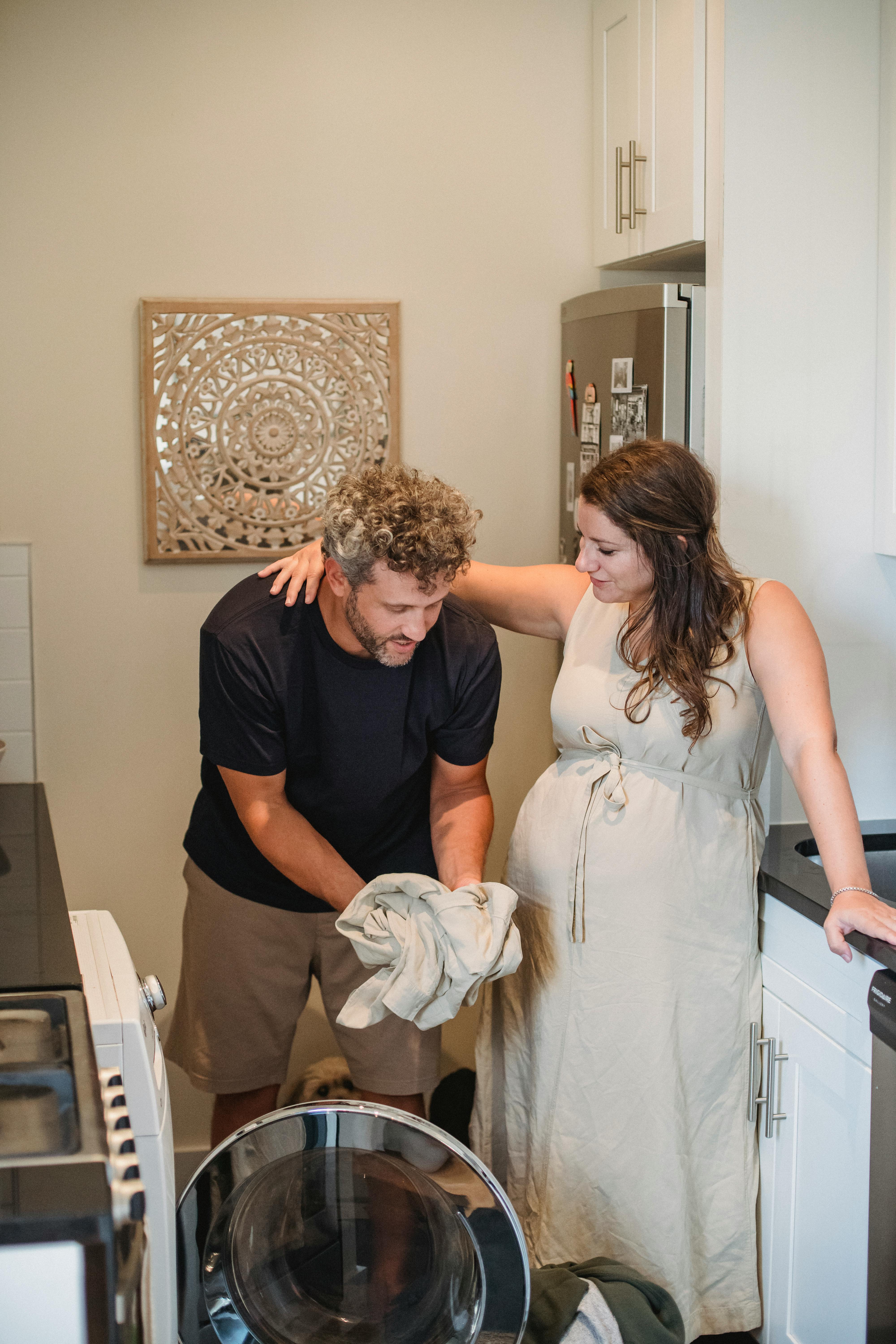Smart Guide to Trusting Your Partner in 2025: Build Stronger Relationships

Apply Now


Smart Guide to Trusting Your Partner in 2025
Understanding the Importance of Trust in Relationships
Trust is an essential pillar in any healthy relationship. It fosters emotional security, enabling partners to feel safe enough to be vulnerable and open with one another. In 2025, trusting your partner will take on new dimensions, especially in an era characterized by rapid technological and social changes. The importance of trust cannot be overstated; it cultivates emotional bonds, empathy, and mutual respect between partners. Trust enhances effective communication, which is vital for addressing conflicts and nurturing intimacy. When partners trust each other, they are willing to engage in honest discussions, leading to deepened relationships and shared values. This article will guide you through the dynamics of building and maintaining trust, communication strategies, and effective techniques to overcome common trust challenges.Key Components of Relationship Trust
There are several pivotal components when it comes to establishing trust in relationships. Honesty forms the foundation, as transparency breeds reassurance and loyalty. Commitment to nurturing trustworthiness involves understanding emotional needs, which can help prevent trust complications such as insecurity. Additionally, emotional intelligence plays a vital role; the ability to recognize one's feelings and empathize with a partner can enhance emotional availability. Support and reassurance are also crucial elements. Knowing that your partner stands by you during tough times fosters a sense of security, helping to solidify your bond. Through trust-building exercises, couples can nurture their connection and explore new dimensions of their partnership, ultimately enhancing intimacy and loyalty in relationships.Building a Trustworthy Relationship
A trustworthy relationship starts with effective communication. Establishing open-mindedness and sharing vulnerabilities can create a safe space for honest discussions. Utilizing trust-building techniques such as trust falls or dedicated trust affirmations can reframe your partnership's foundation. These can serve as tools to boost confidence and reliability between partners. Moreover, it's essential to recognize trust-related conflicts when they arise. By approaching issues with empathy and a willingness to understand your partner's perspective, you can initiate constructive conflict resolution strategies. These steps lead to healthier interactions and support both partners in overcoming past trust issues in relationships.Enhancing Communication Skills for Stronger Trust
Effective Communication Techniques
Effective communication is integral to building relationship trust. By honing your communication skills, you can better articulate your needs and concerns, enhancing your emotional connection with your partner. Key strategies include using "I" statements to express feelings without placing blame and practicing active listening to validate your partner's emotions. Moreover, establishing boundaries and being clear about expectations will help to reduce potential misunderstandings. By promoting transparency in your communication, you can foster an environment that encourages emotional availability and support, reinforcing trust in your relationship.Identifying Signs of Trust and Its Absence
Trust is often built on a foundation of observable indicators. Recognizing the signs of a trustworthy partner can help you assess your relationship dynamics. Qualities such as reliability, understanding, and open dialogue signify a strong trust foundation. Conversely, signs of dishonesty or evasiveness can signal potential trust complications that need addressing. Being aware of these dynamics allows you to adapt and respond to any emerging concerns. Regularly evaluating your relationship will help you stay connected, ensuring both partners feel valued and respected.Overcoming Trust Issues
Trust issues can arise from various past experiences or unhealthy patterns in relationships. Whether it's coping with betrayal or facing insecurities, acknowledging these challenges is the first step to rebuilding trust. Couples therapy can provide a neutral space to explore these feelings together while promoting understanding and forgiveness. Utilizing emotional support and practicing trust exercises could also facilitate healing. Trust recovery techniques, such as fostering honest discussions and sharing vulnerabilities, can lead to renewed intimacy and commitment in your partnership.Maintaining Trust in Long-Distance Relationships
Challenges and Strategies
In today's world, long-distance relationships are increasingly common, making trust even more crucial. Managing expectations in these scenarios is essential, as the physical distance may invite insecurities or doubts. Establishing transparency and shared goals can help reaffirm commitment. Regular communication via calls or video chats can enhance emotional bonds. Trust-building exercises, such as sharing daily experiences or setting up regular virtual dates, can help maintain that vital emotional connection despite the distance.Reinforcing Trust through Shared Values
Shared values play an essential role in developing trust in long-distance relationships. When partners align on their beliefs, commitments, and future goals, it fosters a stronger emotional connection. Open discussions regarding life aspirations can enhance mutual trust and support, allowing both partners to feel invested in their future together. This clarity serves as a reassured promise between partners that they're committed to nurturing trust and love, regardless of any distance.Creating a Safe Space for Vulnerability
A safe space for vulnerability is vital in maintaining emotional trust, particularly in long-distance relationships where insecurities can amplify. Encouraging your partner to express their feelings and uncertainties without fear of judgement is crucial. Creating routines to share thoughts, fears, or desires enables both partners to feel heard and understood, thereby nurturing trust and emotional intimacy. Such environments facilitate open discussions and enhance emotional availability, contributing significantly to a healthy relationship.Fostering Intimacy through Trust and Communication
Rebuilding Intimacy
Rebuilding intimacy often goes hand-in-hand with trust restoration. Engaging in trust exercises can significantly enhance emotional bonds and shared experiences. It’s important to prioritize quality time together, whether through planned dates or spontaneous adventures, to help reignite the spark in your relationship. Moreover, actively working on emotional and physical intimacy will strengthen your bond. Discussing love languages and reconciling differences can create a refreshing atmosphere for deeper connection and understanding, leading to lasting trust.Emotional Validation and Its Impact
Emotional validation plays a vital role in fostering intimacy and trust. When partners actively listen and affirm each other's feelings, it reinforces emotional safety. This assurance enhances vulnerability, promoting deeper conversations about shared hopes and fears. By validating emotions, you cultivate a sense of belonging and security, which is fundamental to healthy relationships. Taking the time to understand emotional needs and demonstrating empathy ultimately leads to a nurturing environment where trust can thrive.Monitoring Relationship Dynamics
Keeping an eye on your relationship dynamics is essential for understanding how trust influences overall relationship satisfaction. Engaging in regular check-ins allows partners to assess their emotional connection, identify any issues, and maintain commitment. Utilizing strategies like seeking feedback and reflecting on shared experiences can enhance transparency, fostering a culture of open communication. As partners invest in their emotional safety, they reinforce their mutual dedication and loyalty, paving the way toward a strong and enduring partnership.Q&A Section: Trust-Related Questions
How can I rebuild trust after a betrayal?
Rebuilding trust after a betrayal requires time and commitment from both partners. Start by openly discussing the feelings surrounding the betrayal. Honesty is crucial; both partners must be transparent about their emotions. Seeking couples therapy can provide guidance on navigating this challenging journey. Trust-building exercises, like sharing vulnerabilities and affirmations, can further aid in healing.What are signs of a trustworthy partner?
Trustworthy partners often exhibit qualities such as reliability, empathy, and honesty. Effective communication is also a crucial indicator; they are open to discussing feelings and maintaining transparency in their actions. Additionally, recognizing loyalty signs, such as dedication to relationship goals, can further reinforce feelings of trust.How do I communicate my emotional needs to my partner?
Clear and open communication is essential for expressing emotional needs. Try using "I" statements to articulate feelings without placing blame. For example, saying "I feel anxious when we don’t communicate regularly" can be more effective than declaring "You never reach out." Foster an environment where both partners feel safe discussing their needs and emotions.What is the role of empathy in trust-building?
Empathy plays a crucial role in trust-building by allowing partners to understand and validate each other's feelings. By practicing active listening and being emotionally available during discussions, partners can create a supportive environment. This emotional validation fosters connections that enhance trust, leading to stronger and healthier relationships.How can I foster loyalty in my relationship?
Fostering loyalty involves demonstrating commitment, trust, and open communication. Show appreciation for your partner’s efforts and prioritize emotional support. Engaging in shared experiences, setting mutual goals, and practicing forgiveness and understanding can also strengthen loyalty, ultimately helping to cultivate lasting trust in your partnership.
